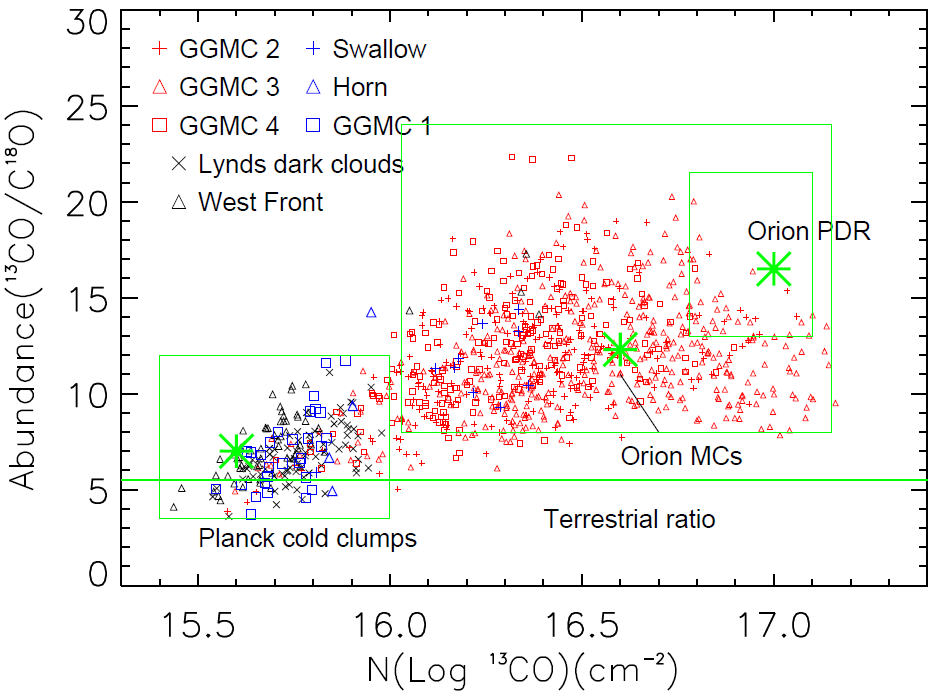Molecular Gas toward the Gemini OB1 Molecular Cloud Complex. III. Chemical Abundance
The chemical abundance of molecules is the basic chemical property of molecular clouds, which is of great significance for studying the interstellar medium and the formation and evolution of molecular clouds.A team of scientists fromthe Milky Way Imaging Scroll Painting (MWISP) project, who present analyses of the 13CO abundanceX(13CO) and the abundance ratio X(13CO)/X(C18O) of molecular clouds by collecting 12CO, 13CO, and C18O (1–0) transitions toward the Galactic anti-centerin the ranges 186.25°< L<195.25°, -3.75°<B<2.75°.
The authors find that these clouds in the regioncan be divided into two types according to X(13CO)/X(C18O).The type I cloudshave lowerX(13CO)/X(C18O)and lower column density with relatively lower temperature, but type II cloudshave a higher abundance ratio X(13CO)/X(C18O)and higher column density with relatively higher temperature. They discussed in detail the effects of photo dissociation on the chemical abundance of molecular clouds. By comparing thesamples with other clouds, the team find that type I clouds are probably at an earlier evolutionary stage than type II clouds.

The paper was published in the Astrophysical Journal Supplement Series.